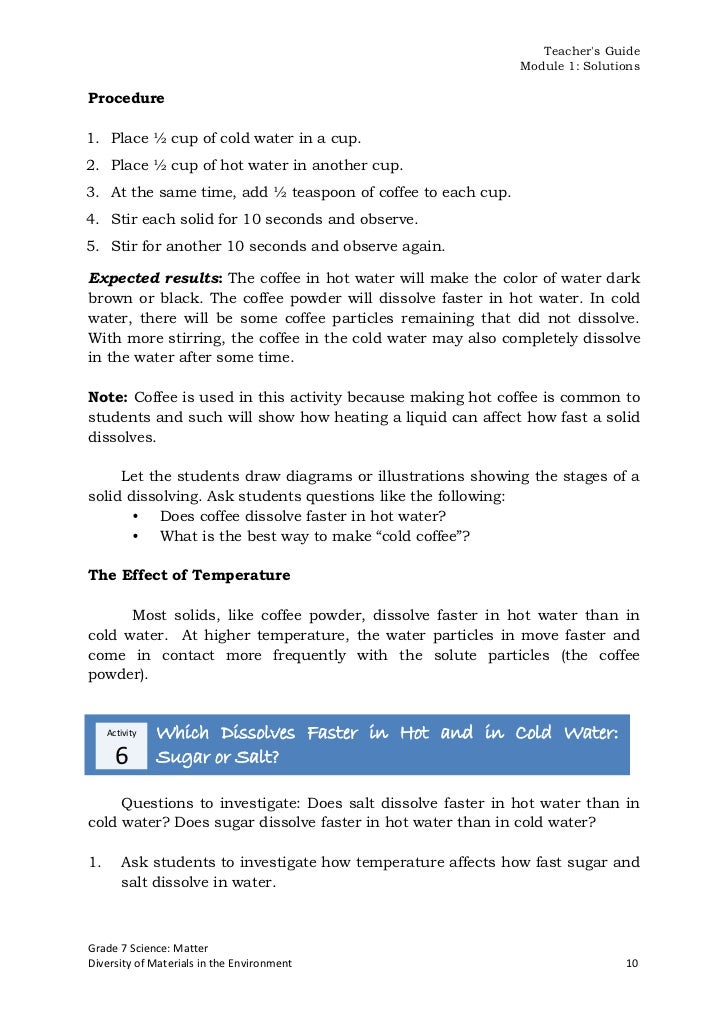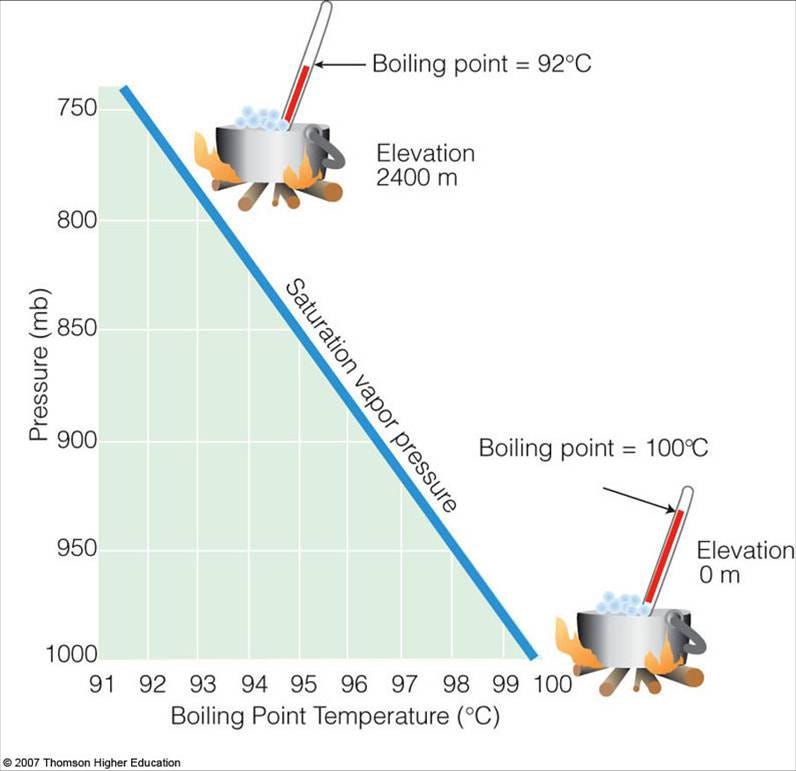45 why does salt water not freeze
INVESTIGATION: Dasani Water Does Not Freeze Like Normal Water There are instances recorded in labs of water at temperatures of -40°C not freezing. Ordinarily, pure water has a freezing point of 0° Celsius, or 32° Fahrenheit. Impurities, such as salt, will lower that freezing point. How much it lowers the freezing point depends on the concentration of the impurity. Why Does Salt Melt Ice? Understanding How It Works Pure water freezes at 32°F (0°C). Water with salt (or any other substance in it) will freeze at some lower temperature. Just how low this temperature will be depends on the de-icing agent.If you put salt on ice in a situation where the temperature will never get up to the new freezing point of the salt-water solution, you won't see any benefit.
How Salt Melts Ice and Prevents Water From Freezing Salt melts ice and helps keep water from re-freezing by lowering the freezing point of water. This phenomenon is called freezing point depression. Salt only helps if there is a little bit of liquid water available. The salt has to dissolve into its ions in order to work. Different types of salt are used as de-icing agents.

Why does salt water not freeze
At What Temperature Does Salt Water Freeze? - Reference.com While it is the salt content that causes the lower temperature for freezing, the salt does not freeze. As the salt molecules move in response to the temperature change, the water molecules freeze into crystals around them. The salt can then be wiped away before the ice melts, making the result salt free. ADVERTISEMENT MORE FROM REFERENCE.COM Why don't the oceans freeze? | Science Questions with ... 1. Salt The high concentration of salt in ocean water lowers its freezing point from 32° F (0° C) to 28° F (-2° C). As a result, the ambient temperature must reach a lower point in order to freeze the ocean than to freeze freshwater lakes. This freezing-point depression effect is the same reason we throw salt on icy sidewalks in the winter. Freezing Point of Salt Water - Science Struck Why Does the Salt Water Have Lower Freezing Point? Water molecules tend to form crystals in the process of freezing. In case of salt water, the process of crystallization is hampered by sodium (Na+) and chlorine (Cl-) ions present in it, and this, in turn, delays the process of freezing.
Why does salt water not freeze. Why Is The Salt In My Water Softener Not Going Down? Some causes of why your water softener salt is not going down. Check for a hollow void by tapping on the side of the brine tank. Break up the salt bridge with a wooden broom handle so the salt drops to the bottom of the tank. Bypass valves or knobs may be in the "Bypass" position. Can the ocean freeze? Ocean water freezes just like freshwater, but at lower temperatures. Fresh water freezes at 32 degrees Fahrenheit but seawater freezes at about 28.4 degrees Fahrenheit, because of the salt in it. When seawater freezes, however, the ice contains very little salt because only the water part freezes. It can be melted down to use as drinking water. Q & A: Freezing Saltwater | Department of Physics ... Salt water will only freeze if it gets cold enough. For water as salty as it can get, that's -21°C. When you put salt on ice it will melt some of the ice but only if the temperature is above -21°C. So at any temperature where fully salty water will freeze, salt won't melt any ice. When salty water freezes, why is the ice not salty ... This is essentially the reason behind why salt melts ice (salt+water is harder to freeze than pure water, and therefore salt+ice is easier to melt than pure ice). Ice will also melt very quickly if exposed to absolute alcohol (and will get very cold!) and vodka won't freeze until it gets below -25°C.
Why Does Salt Lower the Melting Point of Ice ... As a result of these salts, seawater is denser than both freshwater and pure water. Therefore the freezing point of seawater decreases as salt concentration increases. Although the saltiness of ocean water varies, this lowers the freezing point of ocean water to about -1.8°C or 28.8°F. So ocean water will freeze. UCSB Science Line The salt content in the water lowers its freezing temperature by 32°F (17.8°C)! This is a general phenomenon too - dissolving a small amount of any solid in any liquid will decrease its freezing point and increase its boiling point, regardless of what the solid and liquid are. These effects are called the colligative properties of solutions. Does Salt Water Freeze? | Wonderopolis The presence of salt makes it harder for water molecules to bond to the ice structure, because ice naturally repels salt molecules. So in a sense, the salt gets in the way of water molecules, blocking them from joining the ice. The salt also bumps into the ice, knocking water molecules off of the structure -- and that's how salt melts ice. Salt doesn't melt ice - here's how it actually makes ... If the water is mixed with salt, though, the freezing temperature of the solution is lower than 32 F. The salt impedes the ability of the water molecules to form solid ice crystals.
Why Doesn't the Ocean Freeze? | Science project ... This is why the ocean doesn't freeze: There's too much salt in it. Bodies of water located farther inland like islands and rivers have less salt in them, allowing them to freeze when the temperature drops to 0 degrees Celsius. Digging Deeper The beauty of science is that we never run out of opportunities to learn. How Long Does It Take for Saltwater to Freeze? - Reference.com Sea water freezes at a temperature between 28 and 29 degrees Fahrenheit. The freezing point for sea water is lower than it is for fresh water-which freezes at 32 degrees Fahrenheit-because of its greater density. 500 ml of saltwater (containing 1 tsp of salt) will take approximately four hours to freeze in a home freezer. Which freezes faster, water or salt water? - UCSB Science Line Answer 1: While pure water freezes at 0°C (32°F), salt water needs to be colder before it freezes and so it usually takes longer to freeze. The more salt in the water, the lower the freezing point. Very salty water freezes at around -21 °C, or about -6 °F. What is interesting is that this effect is used all over the place for practical reasons. How fast does sugar water freeze? - Sweatlodgeradio.com The Answer: The presence of sugar (or salt, or any other dissolved substance in water) does indeed lower the freezing point of water. How long does it have to be 32 for water to freeze? You might not even be able to freeze it at 32 degrees, but most likely it will be solid after around 10 hours for water equivalent to a normal bottle.
Salt Doesn't Melt Ice—Here's How It Makes Winter Streets Safer If the water is mixed with salt, though, the freezing temperature of the solution is lower than 32 F. The salt impedes the ability of the water molecules to form solid ice crystals.
What temperature does salt water freeze on roads? Why salt water does not freeze? When salt molecules displace water molecules, the freezing rate slows down. This lowers the freezing point of ocean water to about -1.8° C or 28.8° F. So ocean water will freeze. It just needs to reach a lower temperature. Mitxel Roel Pundit.
What happens when water with salt in it freezes? Will the ... Answer (1 of 4): It depends on the circumstances. If it's the river or sea then ice forms on the top, from pure water and the salt solution underneath contains all the salt, in increasing concentration as the water freezes. This is because water doesn't "like" the salt to be part of its crystals....
Why doesn't seawater freeze at zero degrees? | Britannica The temperature drops, but look at this, the water doesn't freeze. The reason for this is tied to the sodium chloride ions in the salt water solution, shown here as blue and red circles. These charged particles disrupt the balance of the molecules, causing the number of water molecules that can hook onto ice molecules to decrease.
Why Doesn't the Ocean Freeze? - Mental Floss Salt has small particles called ions that surround the water molecules and keep them from sticking together to form ice. Ice will only begin to form when the ocean water gets even colder—about...
Q & A: Freezing Point of Saltwater | Department of Physics ... As the water starts to freeze, the salt gets left in the liquid. So if you start out with water that isn't saturated with salt, as it freezes the leftover water will get saturated. So if the water starts to freeze at, for example, -10°C, more will freeze as it's cooled further until finally the last bit will freeze at -21.1°C.
Why does salt water not freeze? - Answers Saltwater does freeze. The salt in the water causes its freezing point to decrease greatly, so it must be at a colder temperature to freeze. However, it will still freeze.
Freezing Point of Salt Water - Science Struck Why Does the Salt Water Have Lower Freezing Point? Water molecules tend to form crystals in the process of freezing. In case of salt water, the process of crystallization is hampered by sodium (Na+) and chlorine (Cl-) ions present in it, and this, in turn, delays the process of freezing.
Why don't the oceans freeze? | Science Questions with ... 1. Salt The high concentration of salt in ocean water lowers its freezing point from 32° F (0° C) to 28° F (-2° C). As a result, the ambient temperature must reach a lower point in order to freeze the ocean than to freeze freshwater lakes. This freezing-point depression effect is the same reason we throw salt on icy sidewalks in the winter.
At What Temperature Does Salt Water Freeze? - Reference.com While it is the salt content that causes the lower temperature for freezing, the salt does not freeze. As the salt molecules move in response to the temperature change, the water molecules freeze into crystals around them. The salt can then be wiped away before the ice melts, making the result salt free. ADVERTISEMENT MORE FROM REFERENCE.COM









0 Response to "45 why does salt water not freeze"
Post a Comment